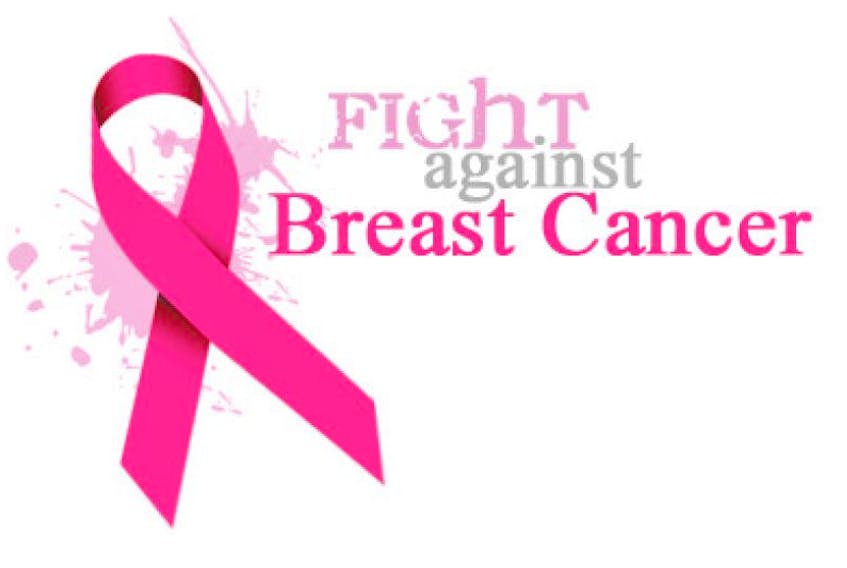
An attempt was made to take a biopsy using a spring-loaded gun and six different needles. It was hard to locate anything with that painful procedure.
A second ultrasound took place in June, but no lump could be detected, so an appointment was lined up to consult with a surgeon.
My friend asked me to accompany her to the busy hospital that morning. No one should have to go alone, so I brought a notepad along thinking I could at least record what the surgeon said.
It was certainly educational. I learned that lesions are not lumps and so little they are often darned impossible to locate, but they can be cancerous. So more testing will occur before any operation.
Not surprisingly, we have a couple breast cancer fundraisers coming up locally. A Wolfville real estate agent, Donna Paisley, is organizing a special evening at the visitors’ centre in Grand Pré on Sept. 30.
Paisley has lined up an entertainer and breast cancer survivor Rhayne Thomas from Los Angeles to star in this event. She’s a musician, author and self-proclaimed shameless beggar who says she has been raising funds for humanity since 1976.
The annual CIBC Run for the Cure is set for Oct. 1 and it always attracts a heart-felt crowd. It starts from Acadia University just after 10 a.m.
According to recent statistics, breast cancer continues to be the most commonly diagnosed cancers among women, but death rates have fallen. From what I learned at that consultation last week, improved technology is increasing detection rates. That’s good news; however, one in nine women in this country will develop breast cancer.
It may be worthwhile noting that in 2011, CBC's Marketplace analyzed the Canadian Cancer Society's financial reports going back about a dozen years. It discovered that each year, as the society raised more funds, the proportion of money that was spent on research dropped dramatically from 40.3 per cent in 2000 to under 22 per cent in 2011.
The Canadian Cancer Society and the Canadian Breast Cancer Foundation merged earlier this year after both reported falling donation levels. Together, the two organizations raised $178 million last year.
These two charities both earned a C+ ranking from Charity Intelligence.
Obviously, the percentage of funds spent on administration should be central to how we should donate. Charity Intelligence has recommended Canadian donors wait and see how this merger unfolds and for cost reductions to materialize.
Of course, this higher-level knowledge doesn’t filter down to the community level much. We react to the personal woe of friends and relatives developing cancer by donating.
I believe those of us who donate must ensure that a single charity collecting 10 per cent of all cancer research gifts annually in Canada demonstrates one priority: fighting a horrible disease.









